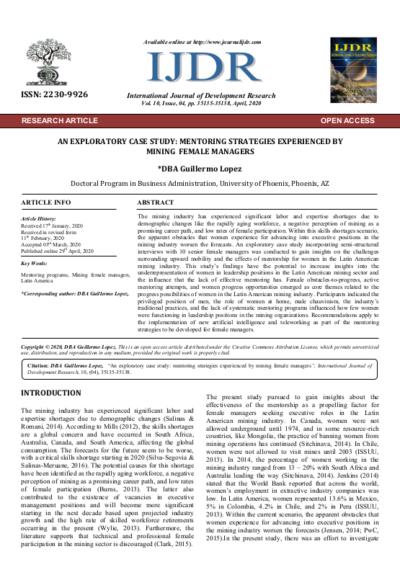
- Report year:2020
- Report author: DBA Guillermo Lopez
- Organisation: University of Phoenix, Arizona
The mining industry has experienced significant labor and expertise shortages due to demographic changes like the rapidly aging workforce, a negative perception of mining as a promising career path, and low rates of female participation. Within this skills shortages scenario, the apparent obstacles that women experience for advancing into executive positions in the mining industry worsen the forecasts. An exploratory case study incorporating semi-structured interviews with 10 senior female managers was conducted to gain insights on the challenges surrounding upward mobility and the effects of mentorship for women in the Latin American mining industry. This study’s findings have the potential to increase insights into the underrepresentation of women in leadership positions in the Latin American mining sector and the influence that the lack of effective mentoring has. Female obstacles-to-progress, active mentoring attempts, and women progress opportunities emerged as core themes related to the progress possibilities of women in the Latin American mining industry. Participants indicated the privileged position of men, the role of women at home, male chauvinism, the industry’s traditional practices, and the lack of systematic mentoring programs influenced how few women were functioning in leadership positions in the mining organizations. Recommendations apply to the implementation of new artificial intelligence and teleworking as part of the mentoring strategies to be developed for female managers.
